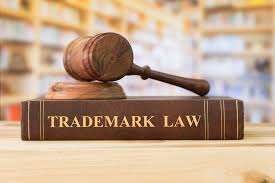Introduction
The Court of Appeal of Tanzania (Court of Appeal) had on the 29th August 2024 delivered a landmark decision on Civil Appeal No. 254 of 2021 involving JP Decaux Tanzania Limited (the Appellant) and Jcdecaux SA and Jcdecaus Tanzania Limited (the Respondents). The Court of Appeal of Tanzania made it clear that, registration of a Company name does not give an automatic exclusive right to use of a trade or service mark. Hence the Court of Appeal discussed and emphasized that the exclusive right to the use of a trade or service mark belongs to the first person to file an application for registration and ultimately registration of that trademark. Acquisition of the right to exclusive use of a trade or service mark in Tanzania is by registration of the trade or service mark, therefore, registration of a company bearing the name of a trade or service mark of another does not amounts to infringement of the other’s trademark because the rights of protection conferred by the Companies Act is not the same protection granted by the Trade and Service Marks Act.
Background of the Case
Jcdecaux SA (the first Respondent) is a family-owned company incorporated in France by Jean Cloude Decaux way back in 1964. It is listed in the Primier Marche of the Euronext Paris Stock Exchange and is part of the Euronext 100 index. The first Respondent is involved in out-of-home advertising spaces and operates in 4,033 cities in more than eighty (80) countries, twenty (20) among them being in Africa. However, in Tanzania, it operates through Jcdecaus Tanzania Limited (the Second Respondent). The first Respondent boasts itself as a number one player of out home advertising and has globally has been using the name “JCDECAUX”. The Second Respondent earlier operated as Continental Outdoor Media Tanzania Limited until 01 June 2016 when it changed its name to Jcdecaus Tanzania Limited following the acquisition by the first Respondent with a South African partner Continental Outdoor Media Holdings Proprietary Limited, a limited liability company incorporated in South Africa. Before 01 June 2016 there was no Respondent company that operated as Jcdecaus Tanzania Limited in Tanzania.
Hence the existence of a Jcdecaus Tanzania Limited in Tanzania started on 01 June 2016. The essence of controversy between the parties arouse in August 2014 when Respondents became aware that the Appellant had registered the company in the name of JP DECAUX TANZANIA LIMITED, which actions allegedly caused confusion as it was similar to its trade mark JCDECAUX. The first Respondent alleged that the Appellant continued using the name JP Decaux, which was an infringement. It claimed that the Appellant’s conduct created a likelihood of confusion out of which the Appellant benefited commercially.
High Court Decision
Initially, this case was filed at the High Court of Tanzania (the High Court). At the High Court, the main issue for determination was whether the Appellant incorporating a company in that name resembling to the Respondent Trade mark, had infringed the Respondent’s trade mark JCDECAUX.
The High Court determined in favour of the Respondents holding that, the similarity of the first Respondent’s trade mark (JCDecaux) to the appellant’s company name (JP Decaux) is obvious as they are only differentiated by only letters “C” and “P” hence confusing. The High Court found that it was an established fact that the Appellant’s Company was incorporated in Tanzania prior to the registration of the first Respondent’s trade mark in Tanzania. However, the same was registered and used in several countries hence worldwide known prior to registration in Tanzania. The High Court further observed that, although the first Respondent’s protection of trade mark does not extend in Tanzania, because trade mark protection is territorial, it is not correct for a person to register a trade mark or business or company name confusingly similar to a widely used trademark with established goodwill in its business while aware of the existing trade mark is not registered in his or her country. The High Court thus held that the Appellant’s act was done by design for the purpose of obtaining some advantage over the goodwill established by the first Respondent in the outdoor advertisement business.
The High Court finally decided that the Appellant’s use of the name JP DECAUX TANZANIA LIMITED infringed the first Respondent’s trade mark namely JCDecaux. The High court therefore permanently restrained the Appellant from trading, marketing advertising and or dealing in the name of JPDECAUX or any other name resembling the first respondent’s trade mark JCDECAUX. Further, the Appellant was ordered to destroy all printed matters and or labels on or for outdoor advertising materials, the use which would lead to the infringement of the first Respondent’s trade mark JCDECAUX. The High Court also ordered the Appellant to pay TZ 3Million and TZS 20Million to the Respondent as punitive and general damages, respectively, due to the Respondent’s loss of goodwill.
Appeal to the Court of Appeal of Tanzania
Dissatisfied by the decision of the High Court of Tanzania, the Appellant preferred an Appeal to the Court of Appeal of Tanzania (Court of Appeal) challenging the decision mainly on two grounds:
- That the High Court erred in law and fact by holding that the Appellant’s name JP Decaux Tanzania Limited which is the company’s name incorporated by the registrar of companies or in short JPdecaux infringes the first Appellant’s well-known trade mark JC Decaux while the Appellant’s company was incorporated in Tanzania prior to the registration of the first Respondent’s trademark.
- That, the High Court erred in law and fact by awarding the sum of TZS 3 Million being punitive damages and TZS 20 Million as general damages to the Respondents while the Appellant’s company was incorporated in Tanzania prior to the registration of the first Respondent’s trade mark in Tanzania.
The Court of Appeal of Tanzania upheld the Appeal deciding in favour of the appellant thereby setting aside the orders for the Appellant to pay both punitive and general damages as well as waiving the restraint order against the Appellant and its associates.
The Court of Appeal observed that registration of the company does not give an automatic exclusive right to the use of a trade mark. Acquisition of the right to exclusive use of a trade or service mark in Tanzania is by registration of the trade and service mark pursuant to the Trade and Service Marks Act, Cap. 326 R.E 2010 (TSMA). Hence, early registration of a trade or service mark is paramount for one to successfully maintain a suit on infringement.
Important points and the Lesson learned from the Decision of the Court of Appeal
- Registration of a company name is not registration of a trade or service mark. The court observed that “the rights of protection conferred by the Companies Act is not the same protection granted by the TSMA. The appellant should be aware that the two protections are distinct. When the appellant registered the company and a Certificate of Incorporation issued by the Registrar, it actually registered a company name. It did not mean that it registered the company name as a trade mark”
- The exclusive right to the use of a trade or service mark belongs to the first person to file an application for registration and ultimately registration of that trademark. For this, the Court of appeal emphatically observed that “it is clear that the exclusive right to the use of a trade or service mark belongs to the first person to file an application for registration and ultimately registration of that trademark.”
- Protection of trademark is only upon registration: The Court of Appeal noted that “As earlier on demonstrated, under our legal regime, the right to an exclusive use of a trade or service mark is dependent upon registration (see section 31 of TSMA).”
- A non-registered trademark cannot be protected in Tanzania. The Court of Appeal observed that “Notwithstanding the fact that the word “earlier trademark” is not reflected in our law as such, it is obvious that, one cannot infringe a non-registered trademark. Following that, it can therefore be inferred that, infringement occurs to an already existing registered trade or service mark. This finds support from sections 20 and 35 of the TSMA which, respectively, bar registration of similar trade or service mark and gives a right of action to an aggrieved party”.
- The Court of Appeal also defined the term infringement thus “the more so, in terms of section 32(l)(a)(i) of TSMA, infringement of a trademark occurs when there is interference with another person’s already registered trade mark which is likely to confuse the ordinary customers as to the source of the goods or services. In our case, the issue is whether registration of a company in a name closely resembling the name of another’s trade and service mark may cause an infringement. The answer is availed by the provisions of the said section 32(l)(a)(i) of the TSMA”.
- The Registration of a Trade of Service mark or Registration of a Company name in the name of a registered trade of Service mark may cause infringement. In this regard, the Court of Appeal noted that “The cited provisions, make it clear that, there may be infringement where a company is registered in the name of another person’s trade or service mark.”
- Infringement of Trade or Service Mark can only be on the Registered Trade or Service mark. The Court of Appeal noted that “There was an argument that, the respondents command worldwide proprietorship of the trademark “JCDECAUX. A number of documentary exhibits were tendered to prove that it is a well-known trademark hence requiring protection from infringement so as to avoid tarnishing or diluting its distinctive character, a practice termed as parasitizing” the well-known trademark. While we acknowledge that such facts were not disputed, the respondents were under obligation to abide to the local law’s requirement. As repeatedly stated above, early registration of a trade or service mark is paramount for one to successfully maintain a suit on infringement”.
- Claim for Infringement can only be by a party that first registered the trade or service mark. The Court of Appeal observed that “by implication, this means that a claim for infringement is available to a party who was first to apply and register its trade or service mark, hence first to acquire protection. Further, in a claim for infringement, the plaintiff should prove that it had already acquired protection before the person complained of came into existence or before the infringement, when the latter legally came into existence”.
- Requirements for a party seeking to file an infringement action of the trade and service mark. The Court of Appeal laid down three requirements for a party that must prove to sustain a claim against infringement of trade or service mark “In the light of the above, in order to bring an infringement action, the plaintiff must prove that he owns the mark; the mark was used in commerce and its use is likely to cause consumer confusion”.
- A Party can not file a case for infringement for unregistered trade or service mark. The Court of Appeal said that “to prevent abuse of the right to exclusive use of a trade or service mark and to ensure that such right is enjoyed by registered trade and service mark only, the provisions of section 30 of the TSMA, in very clear terms, prohibit institution of proceedings to prevent or recover damages for infringement of unregistered trade or service mark.”
- Early registration of a trade or service mark is paramount for one to successfully maintain a suit on infringement. “Notwithstanding the fact that the world’s earlier trademark is not reflected in our law as such, we should be aware of the fact that it is obvious that one cannot infringe a non-registered trade mark. Following this it can therefore be inferred that, infringement occurs to an already existing registered trade or service mark and this finds support from Sections 20 and 35 of the TSMA which respectively bar registration of similar trade or service mark and gives a right of action to an aggrieved party”.
- Protection of well-known trademarks or famous trademarks or internationally known trademarks is not automatic in Tanzania. The Court observed that The only way for one to protect a well-known trade or service mark is to abide by the local law’s requirement. “While we acknowledge that such facts were not disputed, yet the respondents were under an obligation to abide to the local law’s requirement. As repeatedly stated above, early registration of a trade or service mark is paramount for one to successfully maintain a suit on infringement.”
- Recognition of International Conventions: The Court of Appeal made reference and recognition of International Convention to which Tanzania is a party. Specifically the Court of Appeal referred to the Paris Convention of 20th March, 1983 for the Protection of Industrial Property. The Court of Appeal noted that “We are alive to the fact that section 2 of the TSMA takes cognizance of the Paris Convention of 20th March, 1983 for the Protection of Industrial Property and any of its revisions (the Paris Convention) to which Tanzania is a party. The countries to which the Convention applies constitute a Union for the protection of industrial property (see Article 1(1) of the Paris Convention). Under Article 2 of it, it is clear that its purpose is to extend the enjoyment of protection of industrial property to nationals or country member to the Union in all the other countries of the Union but it does not touch on the judicial and administrative laws of each of the member The protection envisaged here is against infringement to the proprietorship of a registered trade or service mark. As to how protection is acquired is a matter for each country to determine.”
Conclusion
This case lays down the key principles against the infringement of Trade or Service marks in Tanzania. The case has set the clarity and distinction between the registration of a trade or service mark vis-à-vis the registration of a company in Tanzania.



